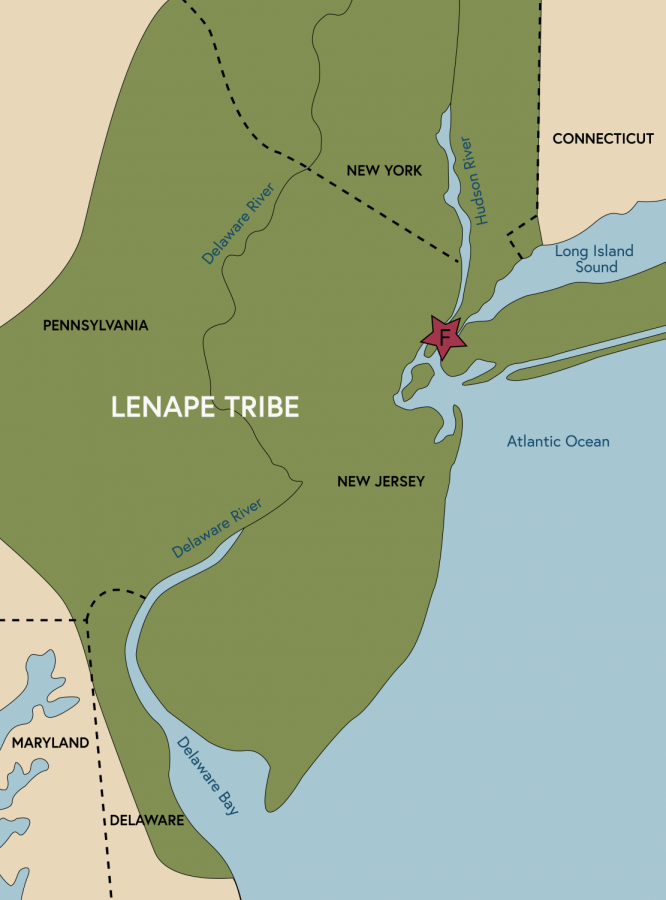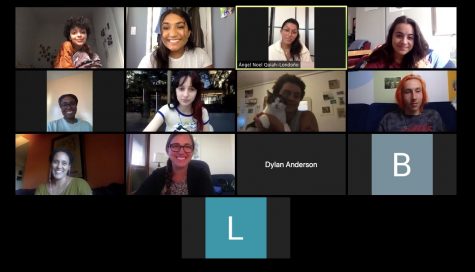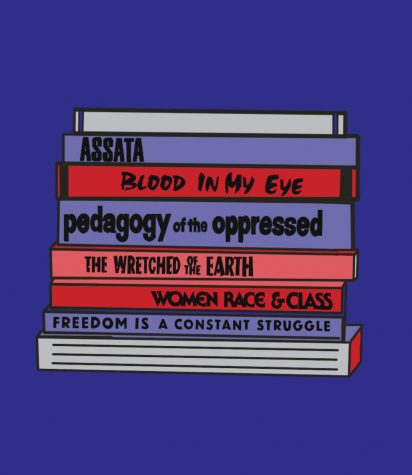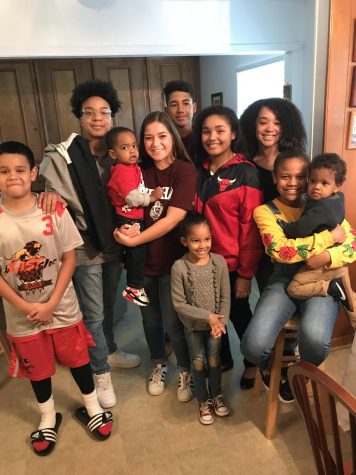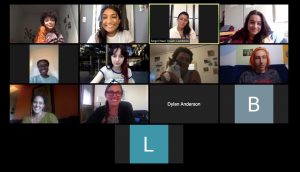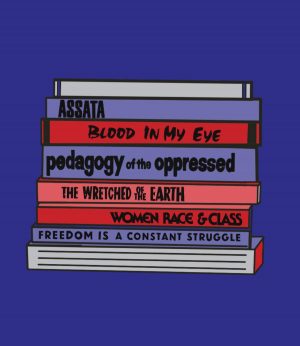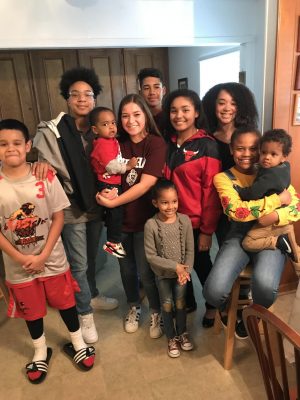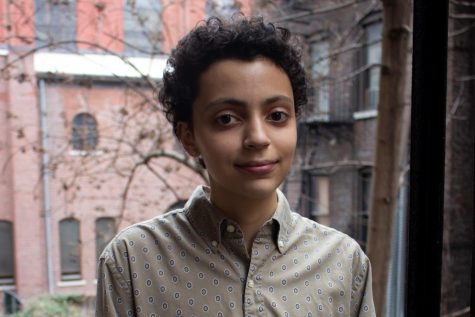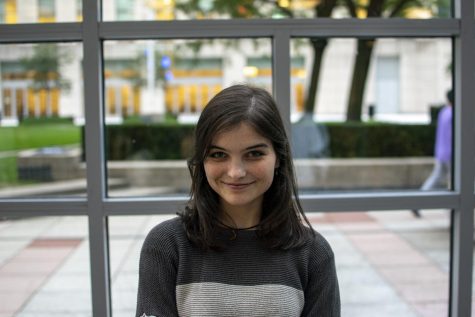Fordham Celebrates Native and Indigenous Peoples’ Month
Fordham students create a community-based curriculum centered around Native and Indigenous peoples’ culture
November 11, 2020
For the fourth year and counting, Fordham has dedicated the month of November to celebrate and learn from the Native and Indigenous populations in the community. Though the Office of Multicultural Affairs’ Native & Indigenous People Committee (NAIPM) numbers are small, the month is full of hybrid and online events for both in-person and online students to attend.
Chanelle Dortch, Fordham College at Lincoln Center (FCLC) ’23, and Viviana Vera, Fordham College at Rose Hill (FCRH) ’22, have been planning events since the summer. The biggest reason the committee comes together every year is because “I want to show that Native is not in the past tense of America — it’s not history, the culture is alive,” Vera stated.
Dortch stressed that the committee has been planning far in advance so that they do not harm anyone both physically and mentally in the process, since there are some sensitive topics covered when speaking about Native and Indigenous history.
The group emphasized that in school, the curriculum centered around Native and Indigenous culture is very surface-level. They hope to introduce Fordham students to a more in-depth rundown of their culture and history. “We want to give people resources that they can actually learn from and participate with,” said Dortch. “If we can go deeper and actually get people to understand, we can help the community be better allies as a whole.”
Dortch spoke further about the need for allies, especially when the Native and Indigenous population is so small at Fordham. “Allies can do good things for Native and Indigenous people by taking a step back to learn and understand while allowing these students to take the spotlight and let their voice be heard.”
An acknowledgment of the history of the land that we are on is so important — the history of the tribal nations surrounding you and having a greater cultural and racial awareness. Teresa Jacobs, FCRH ’23 and NAIPM committee member
The committee wanted to make a space where allies and Native or Indigenous students can learn through fun activities. They acknowledge that learning can be hard work, so by making it enjoyable, they hope in turn to make stronger connections with the community.
The group will be hosting five events spread across the month of November. The kick-off event is a Native Festival, which aims to celebrate the start of the month with dancing, drummers and storytelling. The event, held on Nov. 14 at 12 p.m., will be in McGinley Ballroom at Rose Hill, but online students are welcome to participate from home as well.
Compared to past years, this year’s Native Festival looks very different. Pre-coronavirus, the group would host the event at Rose Hill where the greater Bronx or New York community could also come to learn and participate with the students. Now, since the campus isn’t open to the public, things look a little bit different. “We want to take precautions to make sure our performers are safe too, so we gave them multiple options (in-person and online) to make sure they feel safe,” said Marie Castro, the graduate intern at the Office of Multicultural Affairs.
Even committee members are learning about their own Native and Indigenous culture, as well as learning about others. Castro spoke on the intersection of Latinidad and Native and Indigenous culture. She stated that a lot of the cultural practices her family does — farming, for example — come from the cultural practices of Native and Indigenous people in Puerto Rico.
Since Fordham is a predominantly white institution, sometimes the history of different cultures can get lost or, worse, never even acknowledged. Committee member Teresa Jacobs, FCRH ’23, spoke on the importance of knowing who was on the land before the colonizers took it. “An acknowledgment of the history of the land that we are on is so important — the history of the tribal nations surrounding you and having a greater cultural and racial awareness.”
Fordham University, in conjunction with New York City officials, has a long history of stealing land. Before the Fordham community was here, both the Lincoln Center and Rose Hill campuses sat on land that belonged to the Lenape tribe. The Lenape community had been on the land for at least 11,000 years.
The Lenape tribe focused on agriculture, hunting, fishing and communal gathering. Their land follows two rivers, the Delaware and the Hudson, and stretches through Pennsylvania, Delaware, New York and New Jersey.
Because we live on land that has been stolen, and that has nurtured such rich cultures, we can’t help but have those traditions and values ingrained in our own cultures. Chanelle Dortch, FCLC ’23 and NAIPM committee cultural programming coordinator
Vera acknowledged the specialization and intersections of the culture. “Recognize that there are differences between Native cultures,” she said. “There were many many nations who practiced different cultures on this land way before my ancestors even got here. Think about all the land between California and New York; that has a lot of history.”
Castro talked about the intersection of Native and Indigenous identity through other identities and the importance of that connection. “We have more in common than we do differences,” she said. “Although there is a small population on campus, we as underrepresented people need to be supporters of this community that is typically overlooked.”
The group will also be hosting a Two-Spirit educational event on Nov. 20, which happens to be Transgender Day of Remembrance. Dortch explained that Native and Indigenous people use the term Two-Spirit to encompass the intersections of their spiritual, sexual or gender identity.
The NAIPM committee plan on collaborating with the LGBTQ+ committee since the day intersects the two cultures. “We are able to do much more if we can think of ourselves as moving pieces instead of stationary,” Dortch said.
There will also be a guided painting event, a cooking show and a prize giveaway. These events, like the others, will highlight the cultural impact of art and food in Native and Indigenous culture. Event details are posted on the committee’s Instagram, @FordhamNative.
“Because we live on land that has been stolen, and that has nurtured such rich cultures, we can’t help but have those traditions and values ingrained in our own cultures,” Dortch said. “Connecting this to Fordham, we really need to highlight that and show that we are all different but we also have a lot of similarities that can bring us together.”
A previous version of this article misstated how many years the Native & Indigenous People Committee has observed this month at Fordham. The article has been updated with the correct information.

